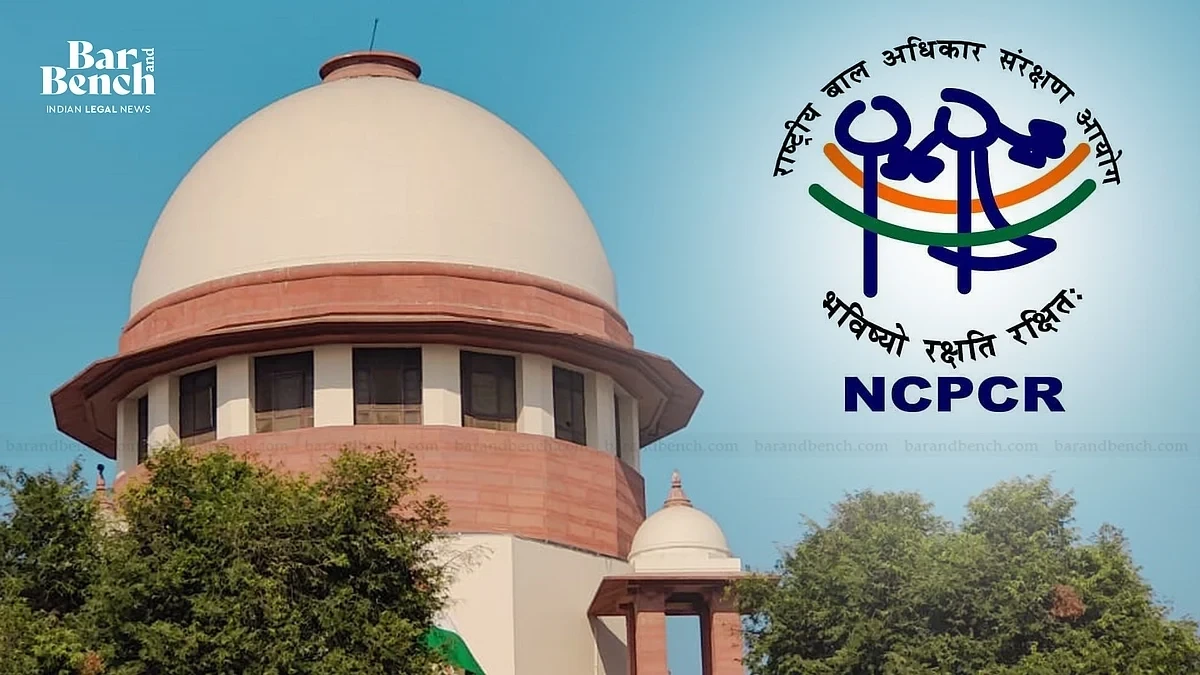The Supreme Court on Tuesday refused to entertain a plea filed by the National Commission for Protection of Child Rights (NCPCR) against orders of the Punjab and Haryana High Court which extended protection to two Muslim married couples, despite the fact that these marriages involved minor girls aged 15-16 years old [ NCPCR v.
Gulaam Deen and ors., and connected matter].
A Bench of Justices BV Nagarathna and R Mahadevan questioned how the child rights body, a third party to the case, could interfere in such a matter. The NCPCR was a stranger to the litigation before the High Court, the top court pointed out.
“You are stranger to writ petition. If two people have come and asked for protection and Court has granted protection and you are challenging the order?” the Court asked.
“The order has been challenged considering the question of law arising,” the NCPCR’s counsel replied.
The Court, however, dismissed its plea.
“The writ before the High Court was filed seeking a writ of mandamus … to protect their (married couple’s) life and liberty … The High Court has granted the prayer. We fail to see how NCPCR can be aggrieved by such an order. If the High Court, in exercise of its power under Article 226, seeks to extend protection to two individuals, the NCPCR has no locus standi to challenge such an order. Dismissed,” it said.
“Keep the question of law open,” the NCPCR’s counsel urged after the order was dictated.
“No,” the Bench replied.
The Punjab and Haryana High Court had earlier ruled that under Muslim personal law, a girl can validly enter a marriage once she has attained puberty or is at least 15 years old.
On such ruling was passed in June 2022, and another similar ruling was passed in October the same year.
Both orders were challenged by the NCPCR before the Supreme Court.
In its appeal, the NCPCR stated that such a ruling was in contravention of the Prohibition of Child Marriage Act, 2006 and the Protection of Children from Sexual Offences Act, 2012 (POCSO Act), as it effectively allowed child marriage and sexual intercourse with children.
Justice Nagarathna, however, today orally observed that it was important to keep ground realities in mind, where minors may fall in love and get married under personal law.
In such cases, it would only traumatise young girls if their partner is jailed on charges under the POCSO Act merely because there is opposition by the family, the judge said.
“We have to keep reality of society in mind. Now-a -days people are not in only-girls school or only-boys school. There are now girls and boys together- what we call co-education. Everybody has freedom for education. Now they have developed feeling for one another, can you say it is criminal to love? … Look at the trauma the girl undergoes if she loves a boy and he is send to jail, because her parents would file a POCSO case to enhance their reputation because they don’t want to display the fact that their daughter has run away. This is harsh reality in society,” Justice Nagarathna said.
The Court, ultimately, dismissed NCPCR’s pleas.
[Read Live Coverage]
